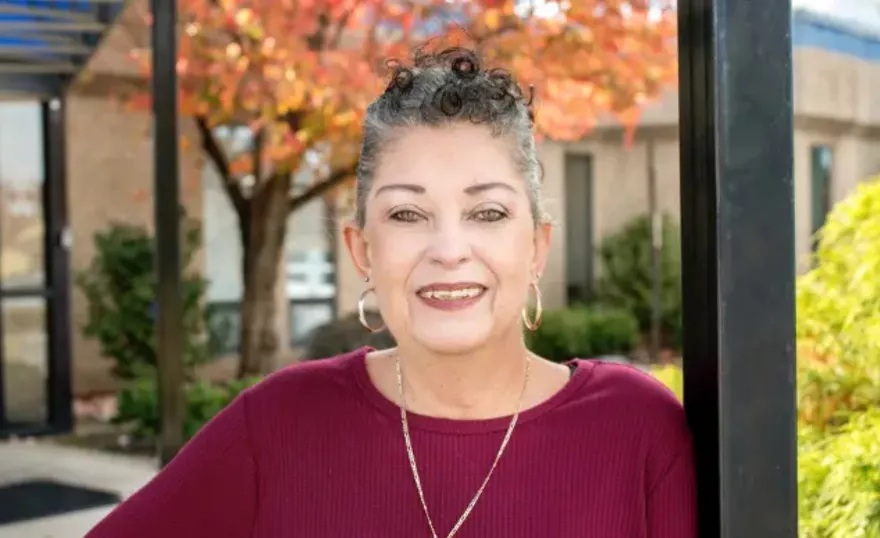General News
A dozen gallons of milk. Two full-size mattresses. A North Pacific giant octopus.
Each of these weighs about 110 pounds, a lot for anyone to carry around all day. But a year after bariatric surgery, Parkton resident Connie Groves doesn’t have to anymore.
“I feel great,” she said. “I have so much more energy to do the things I want to do.”
While she had been carrying a few extra pounds for years, Groves said it wasn’t a troubling amount. Then she quit smoking, and her weight really began to climb.
“I was miserable,” she said. “I didn’t want to shop or look at clothes. I couldn’t do things with my granddaughter.”
When changes to her diet and exercise habits had little effect, she started to think about bariatric surgery. She called her insurance company to find out what they would cover, and then made an appointment with Ovie Appresai, M.D., FACS, the surgeon who would change her life.
“He was wonderful,” she said. “When I talked to him, I felt like I was really ready to take this step.”
Appresai is one of three Cape Fear Valley surgeons who specialize in bariatric surgery, a procedure that alters the digestive system to induce dramatic weight loss. Depending on several factors, a surgeon may recommend either of two main types of bariatric surgery: the gastric bypass or the sleeve gastrectomy.
In the bypass procedure, the top of the stomach is made into an egg-sized pouch. That reduced stomach is then connected directly to the small intestine, bypassing most of the stomach and some of the small intestine. The result is a diminished intake of food and a limited absorption of calories that pass through.
With the sleeve gastrectomy, most of the stomach is removed and the remainder is fashioned into a tube-like structure (the “sleeve”) that holds about 15 percent of the stomach’s previous capacity. The stomach’s production of ghrelin, the hunger-stimulating hormone, is diminished in this procedure. So even while eating less food, patients are also feeling less hungry.
The resulting weight loss doesn’t just help a patient look and feel better; it’s a life-saving measure for those whose weight puts them at risk for deadly complications like diabetes and heart disease.
For Connie, the health effects of her weight were pretty clear: Knee trouble, sleep apnea, high blood pressure and diabetes were all taking their toll.
While the decision to have surgery was easy, getting there was a long and detailed process. After clearing a couple of insurance hurdles, she had some in-depth conversations with Dr. Appresai and his staff about what the surgery would entail and what it would require of her. Patients are also introduced to a psychologist, to help them understand the emotional implications of this lifestyle change, and a nutritionist to walk them through their new way of eating.
“I had to learn a lot,” she said. “They really want to make sure you know what you’re getting into. This surgery is not an easy way out, like some people say. You have to change your whole way of life, forever.”
And that she has. Two years after her surgery took her from 287 to 177 pounds, Groves said her daily habits have shifted completely.
“What I eat is completely different,” she said. “I eat a lot of grilled chicken and fish to keep my protein up. I was addicted to soda before but I can’t even think about it now. You figure out pretty fast which foods are going to make you sick, and then you never want to look at them again.”
Saying goodbye to her favorite foods was a tough adjustment, but Groves said the payoff has been incredible. Aside from the 110-pound weight loss, she has cleared out her medicine cabinet (“All I have to take now is vitamins”) and discovered a whole new level of energy.
“I love spending time in the parks, walking on trails,” she said. “I go to HealthPlex every day to work out. Sometimes I see Dr. Appresai there and he tells me I’m doing a good job. He’s still encouraging me.”
With improved health, a fresh look and a renewed appreciation for shopping (“I can even borrow my daughter’s clothes now”) Groves said she only has one regret.
“Seeing how this has turned out,” she said, “I just wish I’d done it sooner.”




